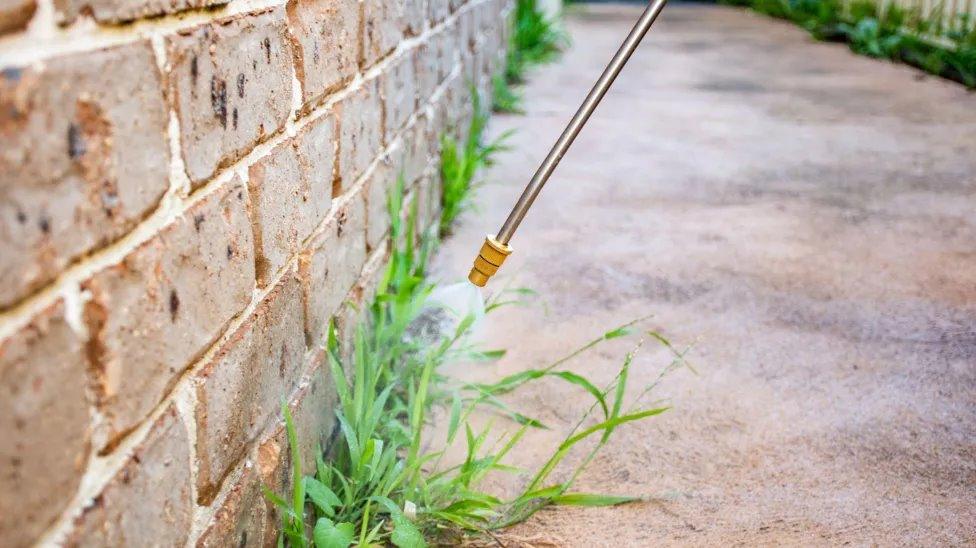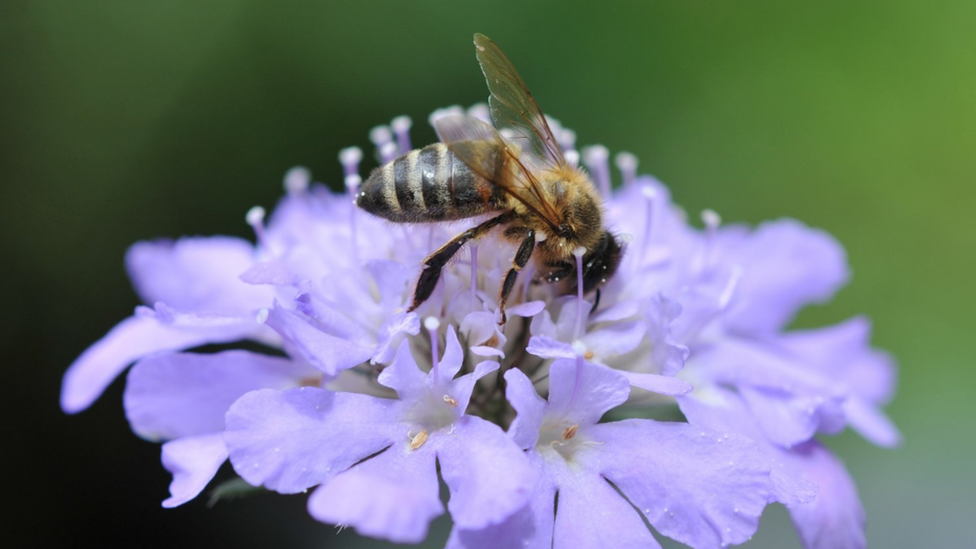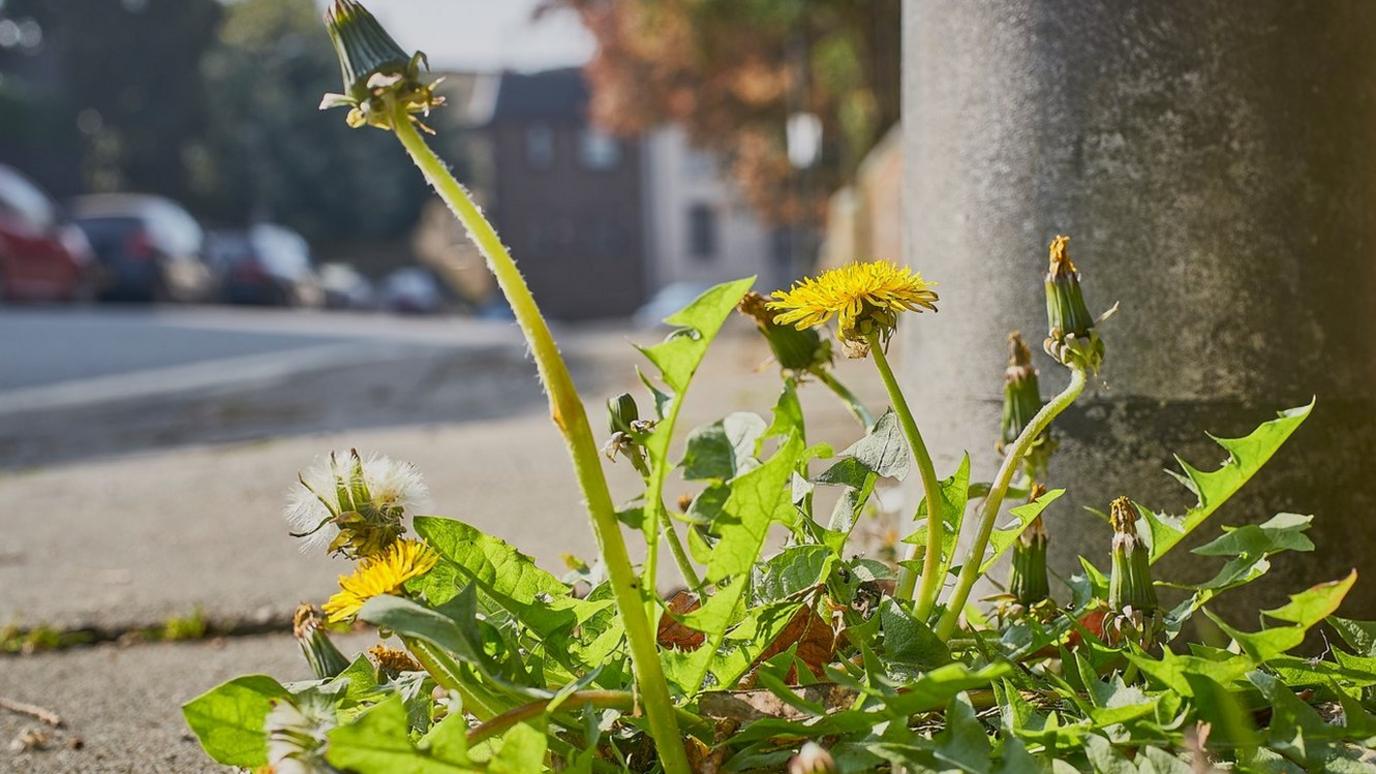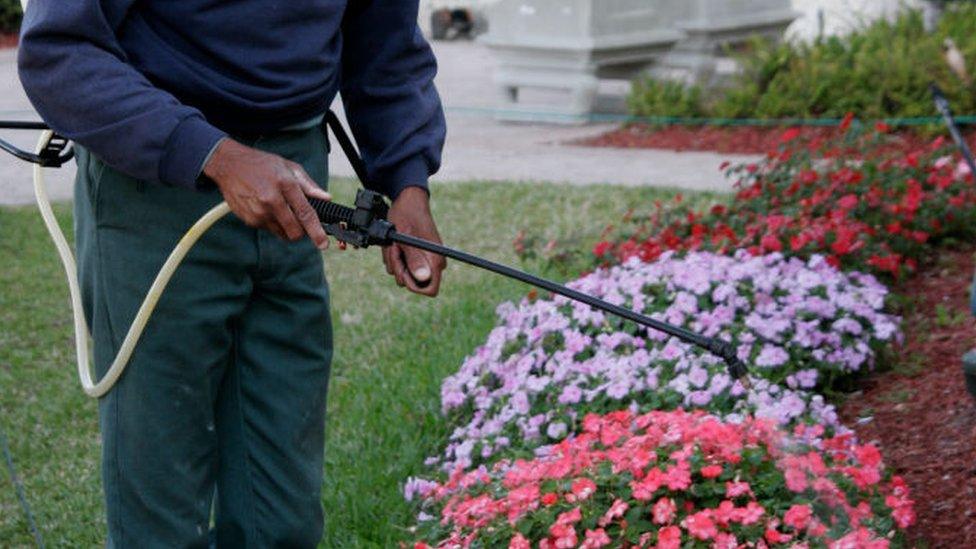Suffolk County Council may reintroduce glyphosate to treat weeds
- Published

Suffolk County Council stopped using glyphosate in February 2022
A council may reintroduce a type of weedkiller after finding chemical-free alternatives ineffective.
Suffolk County Council decided to stop using glyphosate, external in its weed treatment programmes in February 2022, and moved to using "more natural" options.
The council said these alternatives had been unable to meet its requirements, with multiple applications required.
Conservative councillor Paul West said: "The different treatments haven't worked as well as we'd hoped."
Mr West continued that it was important to "strike a balance" between being careful with taxpayer's money, protecting the environment and considering public safety on roads and pavements.
"Part of that balance is making sure that whatever treatment we apply, it is effective. That includes looking to reintroducing glyphosate to some of our operations for the best possible performance," he said.
"We've monitored the work that we've done since moving away from glyphosate on our roads and pavements, and listened to feedback from residents. Some were pleased that we were using less chemicals, but others thought that weeds had thrived too much."

Glyphosate has been linked with a decline in pollinating insects, such as bees
Glyphosate was introduced by the American agrochemical firm Monsanto in 1974. When its patent expired in 2000, various manufacturers began producing the chemical and it is now sold worldwide.
In 2015, the International Agency for Research on Cancer - the World Health Organisation's cancer agency - concluded that glyphosate was "probably carcinogenic to humans", external.
Simon Harley, a spokesperson for biodiversity for the council's opposition Green, Liberal Democrat and Independent Group, said: "It seems to me the problem could have been easily foreseen, as anyone who has used glyphosate in their garden knows how effective and indiscriminate it is."
Mr Harley said he does not want to see the weedkiller used "indiscriminately", suggesting more "self-help schemes" could be used in which parish and town councils work with community volunteers to clear weeds.
The council confirmed it would continue to use a variety of weed treatment methods, adding that glyphosate would be used responsibly if reintroduced, as it is one of the most cost-effective and long-lasting solutions.

Follow East of England news on Facebook, external, Instagram, external and X, external. Got a story? Email eastofenglandnews@bbc.co.uk , externalor WhatsApp 0800 169 1830
Related topics
- Published16 January 2024

- Published11 December 2023
- Published20 March 2019
